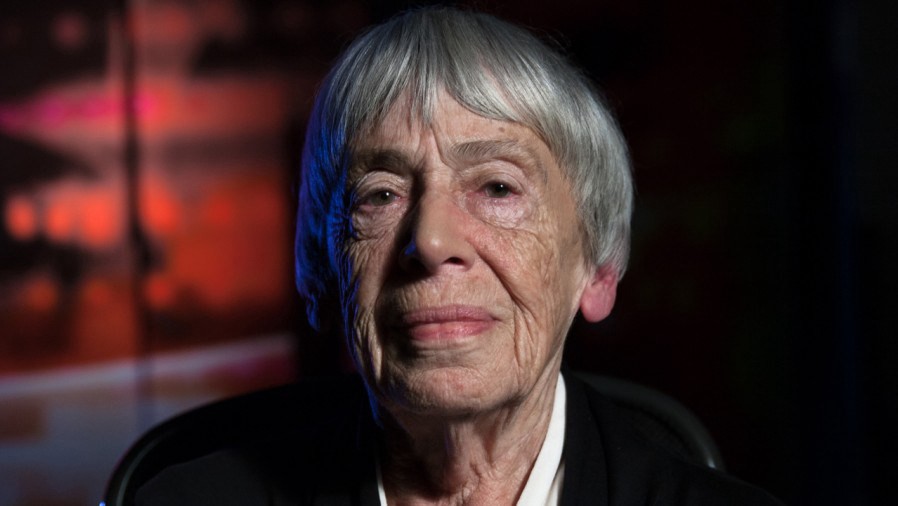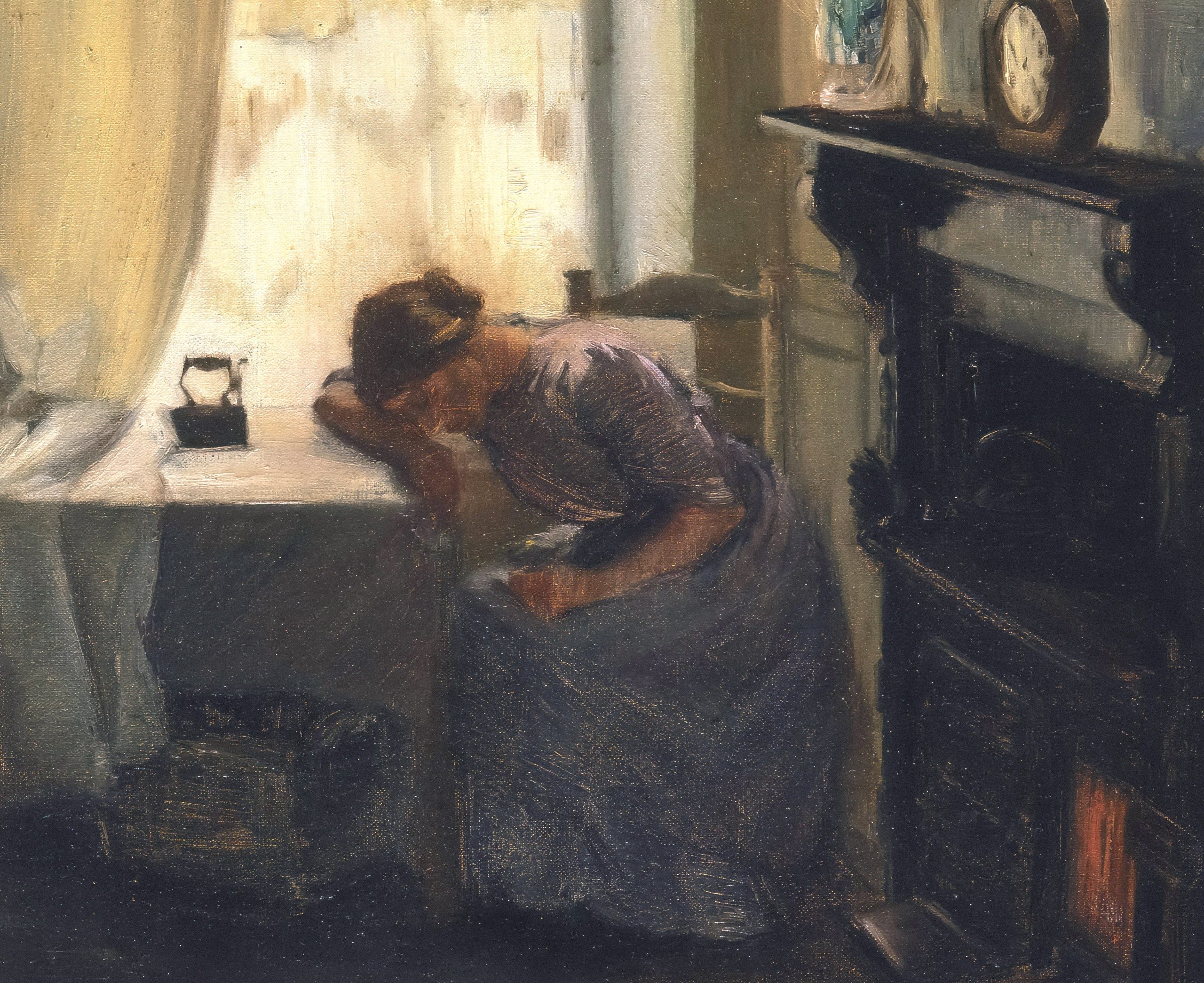essays
A Small Sampling of Ursula K. Le Guin’s Prescient Wisdom and Where to Find It

If you’re still reeling from the inspiring speech Ursula K. Le Guin dropped at the National Book Awards last week, that’s natural. When we’re confronted by people who are smarter than us and love us too, it’s hard not to feel a little in awe for weeks. Or in Le Guin’s case, be in awe for decades. And even if you’re one of those who was Googling her to figure out what Le Guin is all about (“The Wizard of whhozit? Whose left hand is where?”) that’s okay, because you’re into her now.
But outside her gigantic body of fiction and poetry, maybe you’re jonesing for a few more Le Guin pearls of real-world wisdom. Maybe you’re looking for Ursula Le Guin to talk directly to you the way it seemed like she spoke to all of us last week. That’ easy! Because there’s even more Ursula K. Le Guin wisdom, hanging out in her essays and books of non-fiction.
If you’ve never read any Le Guin before, at all, starting with her non-fiction might (counter-intuitively?) be the way to go. It’s a little like watching the special features or director’s commentary on a movie before seeing it, but slightly better because most movie directors look like semi-sentient plat e of lasagna next to Ursula. Here’s a totally incomplete sampling of fantastic stuff Le Guin has said on a variety of topics.
“In eternity there is nothing novel, and no novels”
In an essay simply titled “Some Thoughts on Narrative,” (found in her book Dancing at the Edge of the World) Le Guin makes the case that our desires to create stories out of our lives is part of how people remain sane. If we think the universe as eternal, it’s hard to figure out what is special, or novel. She doesn’t think narrative is a “rationalization” of life, however, but rather way of acknowledging that reason alone can’t explain everything that there is about life. Or as she says toward the end of the piece, “We cannot ask reason to take us across the gulfs of the absurd. Only imagination can get us out of the bind of the eternal present, inventing hypothesizing, or pretending or discovering a way that reason can then follow into the infinity of options, a clue through the labyrinths of choice, a golden string, the story, leading us to freedom that is properly human, the freedom open to those whose minds can accept unreality.”
Le Guin’s fixation on what is and is not “realism” was briefly mentioned in her NBA speech too, and it’s an important part of how reading her non-fiction can help to retrain you brain into allowing “unreal,” or sometimes outright absurd statements to make more of an impact than straightforward ones. At the start of her essay “Introducing Myself,” which opens her book, The Wave in the Mind, Le Guin, the consummate feminist, has the first line be: “I am a man.” It’s both jarring and hilarious. It’s not a rule, but great science fiction writers and fantasists are sometimes excellent (but not accidental) humorists. Le Guin isn’t being flippant for the sake of it in this piece, but instead invites the reader into her head, and by extension, makes a connective leap to anyone who has felt marginalized, but specifically women. There are a lot of good quips in this essay (which Le Guin occasionally read as a performance piece in the 90s) but the best one is easily:
“I predate the invention of women by decades.”
Invention, or the creation of her stories and novels is another topic Le Guin seldom shies away from in her non-fiction. A longtime instructor at the famed Clarion Writing Workshop, Le Guin contributed to an anthology called Those Who Can: A Science Fiction Reader. Originally published in 1973 by Clarion, but then republished in 1996 by St. Martin’s for a wider release, Those Who Can is a fantastic book for any beginning writer, or student of fiction in any genre. A smattering of short stories is offered, each specifically designed to elucidate a particular aspect of (science) fiction writing: character, plot, point of view. Following her short story “Nine Lives,” (a killer yarn about a bunch of clones), Le Guin served up an essay called “On Theme,” in which she discusses one of her most dreaded questions, and one science fiction writers have been avoiding since the dawn of their genre: WHERE DO YOU GET YOUR IDEAS?
Le Guin has little patience with this, stating, “…because the question is unanswerable. It implies there is a mysterious storeroom somewhere full of Strange Ideas, where sf writers go when they need one. Well, of course there is such a storeroom, but it is the own writer’s head.” She then makes it positively clear that one of the only solutions to becoming a better writer, or explaining where anyone (sf writer or not) gets their ideas is simply from reading other books. Le Guin’s passion about books and reading in general was on full display at the National Book Awards, and she’s been saying it for a long time:
“After all, until you can read the lines, you can’t read between the lines.”
Le Guin’s best non-fiction is often exactly like the quote above: prescriptive medicine which you already should really know to be taking, but for some reason, avoid, or forget. Dancing on the Edge of the World has a cute little key at the beginning, in which the author lets the reader know what subject each of the piece will be about; feminism, books, social responsibility, travel, but the funny thing is, the distinctions are unnecessary. Ursula Le Guin’s non-fiction — from A Wave in the Mind, to Dancing at the Edge of the World — unites and explains her more fantastic musings in ways that are occasionally even more mind-blowing than her fiction. We’re all living alongside someone who has uttered more profundities about being a good person and being a smarter writer than any random combination of her peers. Because if you read Ursula K. Le Guin’s essays more — or for the first time — you’re going to find yourself quoting and sharing almost every single line.









